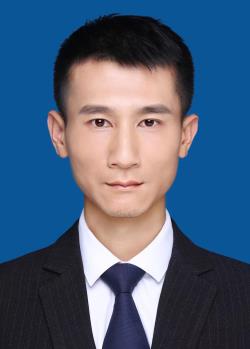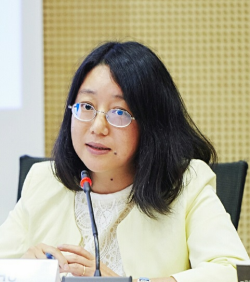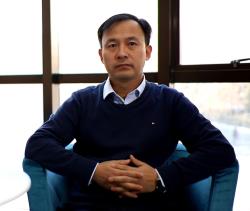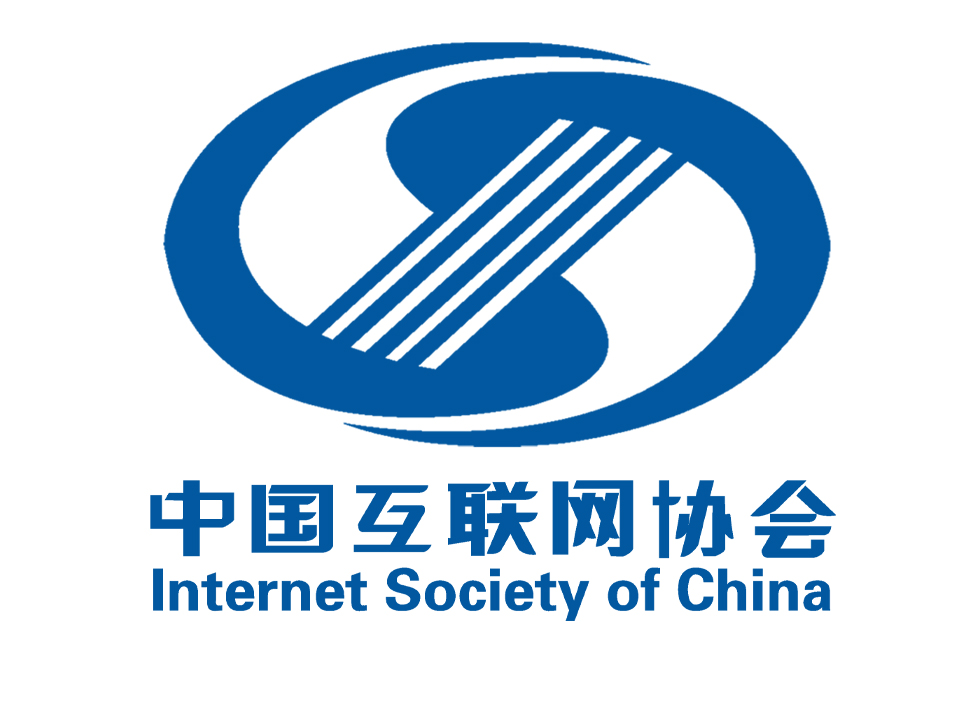Promoting age-friendly digital technologies collaboration and innovation for an inclusive information society
Internet Society of China, China Academy of Information and Communications Technology
Session 275

In view of the difficulties of the elderly, China specially formulates technical standards, and encourages industry to provide various online service and technologies for the elderly and disabled. By intelligent analysis technology, China modifies and evaluates websites, APPs, and various intelligent terminal devices to meet the needs of the special groups. So far, China has completed renovation of more than 30,000 websites and about 10,000 Internet applications for the elderly and disabled.
Building on the success from the previous 8 workshops with the acknowledgement of the social model of inclusion, the workshop this year will bring together speakers from multi-stakeholders under the theme of “ Promoting age-friendly digital technologies collaboration and innovation for an inclusive information society”. We look forward to working with all stakeholders to strengthen exchanges and cooperation in the field of digital inclusion, share best practices, and make active efforts to build an inclusive information society that benefits everyone.



Dr. Xianhong Hu is UNESCO’s Programme Specialist at the Sector of Communication and Information. She joined UNESCO through its competitive Young Professionals Program in 2006.
She serves on the Secretariat of UNESCO’s Intergovernmental Program of Information for All (IFAP) since 2021 and had led UNESCO project of Internet Universality R.O.A.M principles (Rights, Openness, Accessibility, Multi-stakeholder) indicators during 2013-2021.
She has followed the UN led processes of the World Summit of the Information Society (WSIS) and Internet Governance Forum (IGF) since 2006. Her policy work relates to humanistic digital governance and transformation, the ethical implications of Artificial Intelligence and other emerging technologies and building humanistic and inclusive Knowledge Societies.
She observed the IGF Multistakeholder Advisory Group (MAG) and Missions Publiques. She serves on the Steering Committee of member of European Dialogue of Internet Governance (Eurodig) and the International Conference on Theory and Practice of Electronic Governance (ICEGOV).
She received a Ph.D from School of Journalism and Communication at Peking University in China in 2007 and was an affiliate of Harvard University Berkman Klein Center for Internet and Society (2021-2022). She is an alumni in the professional area of Internet governance of the International Visitor Leadership Program (IVLP) as invited by the U.S Department of State in 2016.
She authored +20 publications and articles and recently lead-authored UNESCO policy study Steering AI and Advanced ICTs for Knowledge Societies: A ROAM Perspective’(2019).
She gave guest lectures in a number of Universities including Science Po, Bordeaux University Montagne, University of Malta, the Chinese University of Hong Kong, Macao University, Peking University, China Communication University, etc.
She initiated UNESCO Series Publication on Internet Freedom in 2011, which has captured the complex dynamics of global Internet governance by studying policy issues of online freedom of expression, privacy, Internet intermediaries, digital safety, Artificial Intelligence, etc. She has conducted UNESCO Series Publication on investigative journalism including “Story-Based Enquiry: A Training Manual for Investigative Journalism” and “Global Casebook of Investigative Journalism”.
x.hu@unesco.org
WEBSITE:
https://www.unesco.org/en/ifap
https://en.unesco.org/internet-universality-indicators
TWITTER : @HuXianhong

Dr. Su Wei, Director, Information Accessibility Research Center of Lanzhou University, China
Dr. Su Wei actively contributes to the disability community by serving on the board of directors for the China Disability Research Society (CDRS) and the National Universal Braille Promotion and Research Committee, while also holding the prestigious position of Vice President for the Overseas-Educated Scholars Association of Lanzhou. As a professor of Lanzhou University, Dr. Su Wei's research focuses on artificial intelligence, deep learning, and information accessibility technology. He has published over 60 research papers, demonstrating his prolific contributions to the field. His achievements have also been recognized through awards such as the Wangxuan News Science and Technology Award and the Gansu Patent Inventor Award. He spearheaded the development of the China Braille Digital Platform (http://www.braille.org.cn), a groundbreaking initiative that provides Braille intelligent translation and a vast library of reading materials to 17 million visually impaired people in China.

Wang Ce(Ms)
Program Manager, China Mobile Research Institute
Continuously conducting research in areas such as artificial intelligence and information accessibility, deeply understanding the latest international trends, research progress, and industry practice cases related to these topics.
-
 C1. The role of governments and all stakeholders in the promotion of ICTs for development
C1. The role of governments and all stakeholders in the promotion of ICTs for development
-
 C4. Capacity building
C4. Capacity building
-
 C7. ICT applications: benefits in all aspects of life — E-government
C7. ICT applications: benefits in all aspects of life — E-government
-
 C7. ICT applications: benefits in all aspects of life — E-health
C7. ICT applications: benefits in all aspects of life — E-health
-
 Goal 3: Ensure healthy lives and promote well-being for all
Goal 3: Ensure healthy lives and promote well-being for all
-
 Goal 4: Ensure inclusive and equitable quality education and promote lifelong learning opportunities for all
Goal 4: Ensure inclusive and equitable quality education and promote lifelong learning opportunities for all
-
 Goal 10: Reduce inequality within and among countries
Goal 10: Reduce inequality within and among countries
-
 Goal 11: Make cities inclusive, safe, resilient and sustainable
Goal 11: Make cities inclusive, safe, resilient and sustainable
-
 Goal 16: Promote just, peaceful and inclusive societies
Goal 16: Promote just, peaceful and inclusive societies

